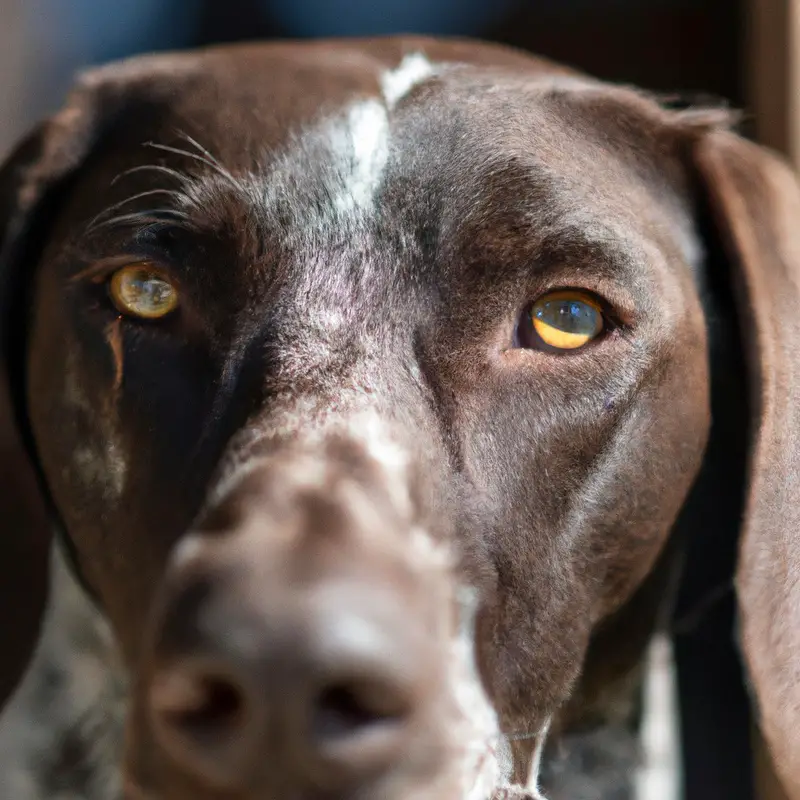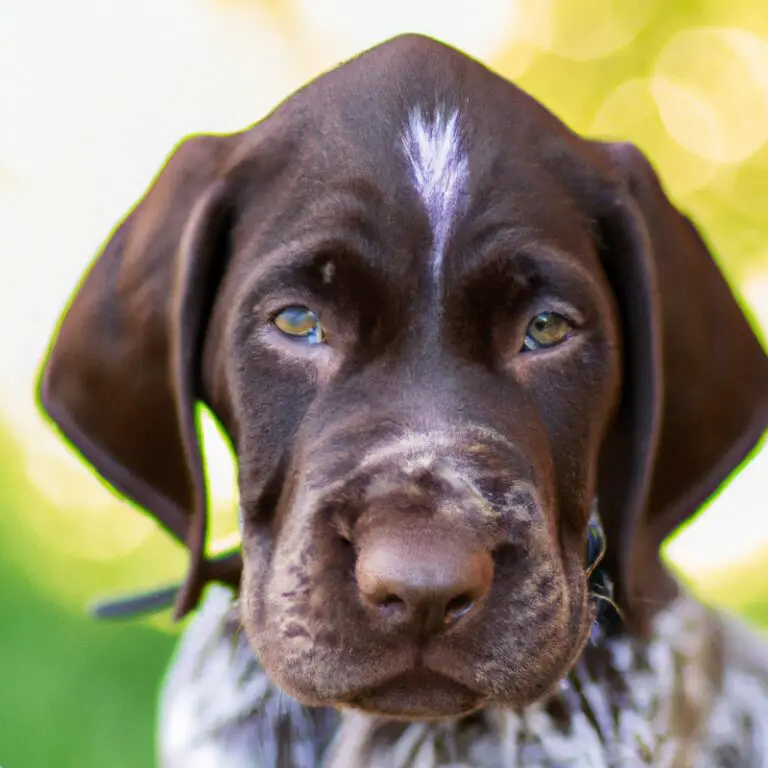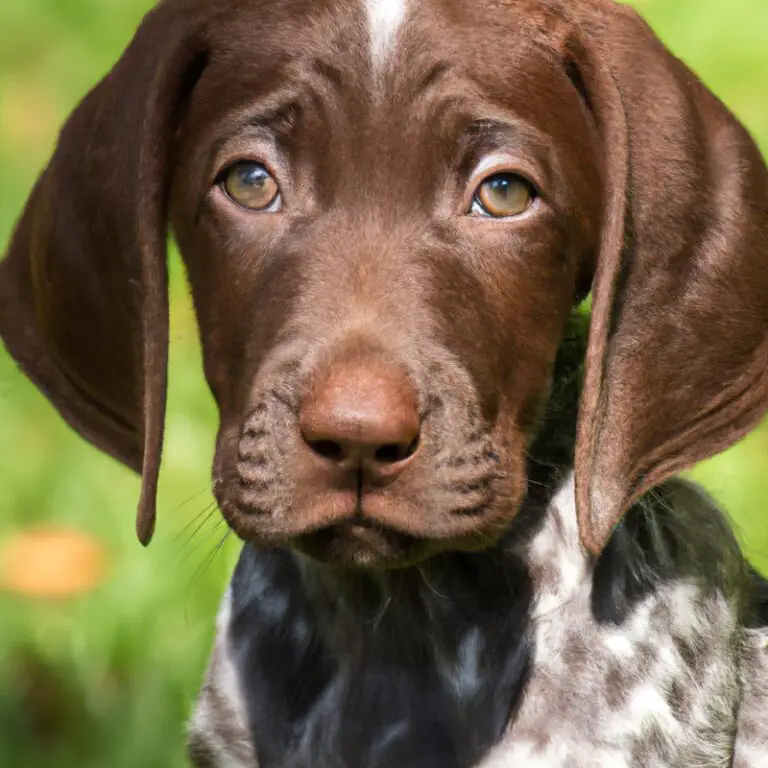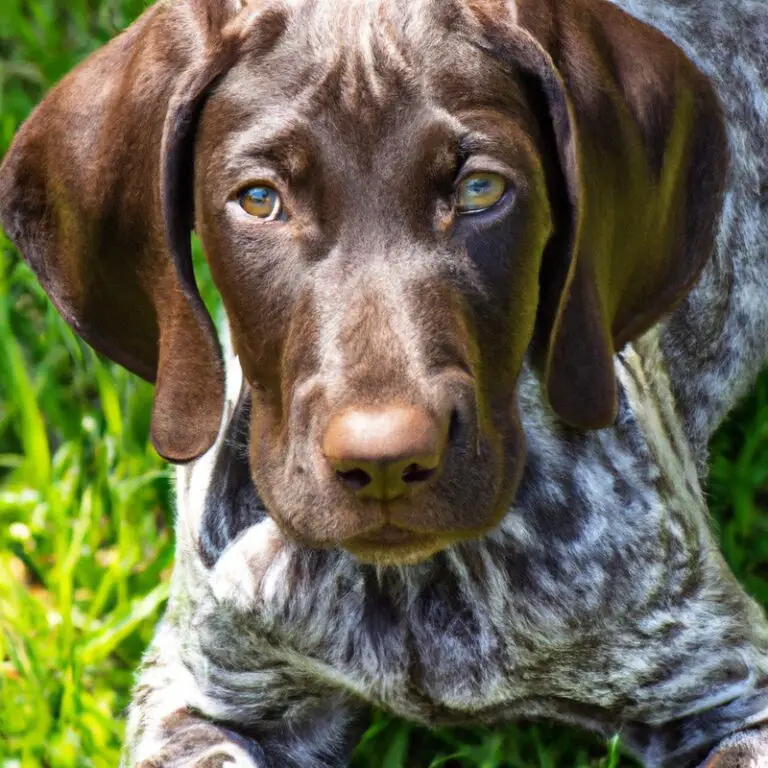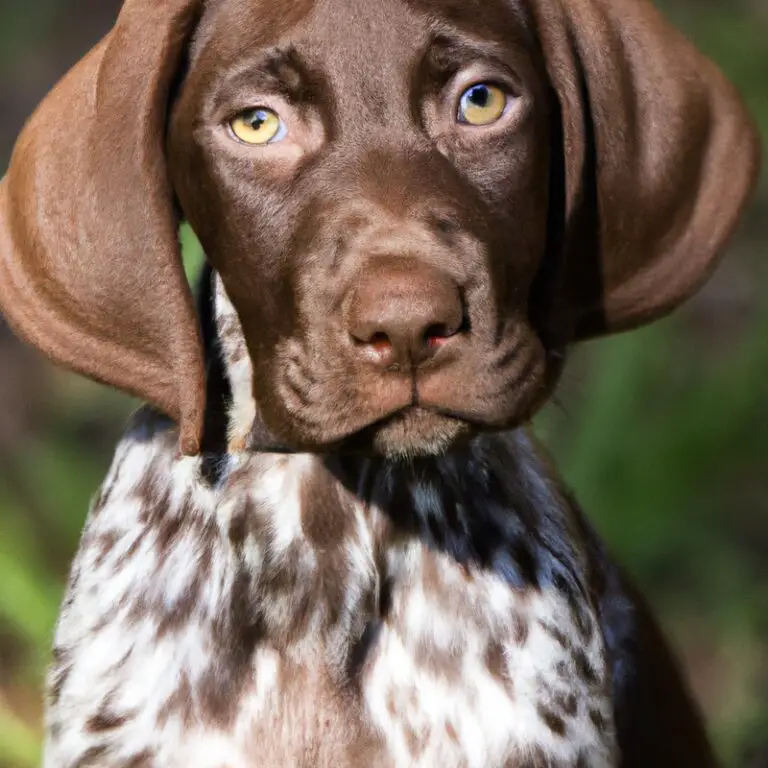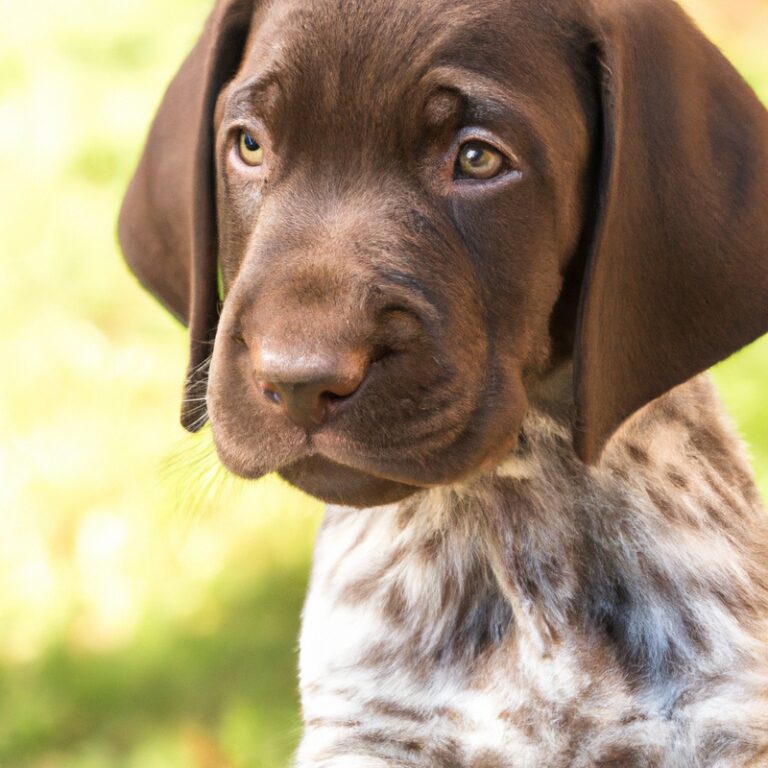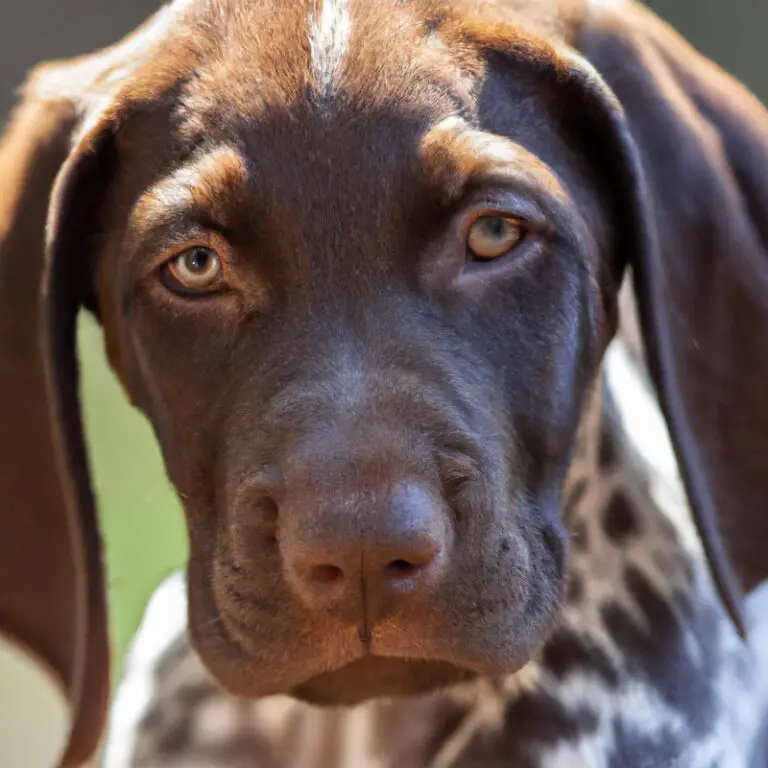How Do I Train a German Shorthaired Pointer To Hunt?
Key Takeaways:
- Start with basic obedience training: Before focusing on hunting skills, it’s crucial to establish a foundation of basic obedience training for your German Shorthaired Pointer. This includes commands like sit, stay, come, and heel.
- Introduce scent training gradually: Scent training plays a significant role in teaching your German Shorthaired Pointer to hunt. Begin by introducing scents like feathers or shed antlers and gradually progress to more complex scents like game birds.
- Utilize positive reinforcement techniques: Positive reinforcement, such as using treats, praise, and play, is key when training your German Shorthaired Pointer to hunt. Reward and reinforce desired behaviors to encourage your dog’s hunting instincts and ensure a positive training experience.
- Seek professional guidance if needed: If you’re new to training hunting dogs or facing challenges during the training process, consider seeking guidance from a professional hunting dog trainer. They can provide expert advice and guidance tailored to your German Shorthaired Pointer’s specific needs.
Looking to transform your loyal German Shorthaired Pointer into the ultimate hunting companion? Well, you’ve come to the right place! As an expert in training hunting dogs, I’m here to guide you through the process of turning your beloved pet into a skilled and instinctive hunter.
From understanding the unique characteristics and temperament of German Shorthaired Pointers to building their hunting skills and troubleshooting training challenges, this article covers it all.
So, grab your coffee, sit back, and get ready to embark on an exciting journey of training your four-legged hunting partner!
| Step | Description |
| 1 | Start with basic obedience training. Teach commands such as sit, stay, and come. This establishes a foundation of discipline and control. |
| 2 | Expose the dog to different environments. Gradually introduce them to the sights, sounds, and smells of the outdoors. Familiarize them with the natural environment they will encounter while hunting. |
| 3 | Introduce the dog to birds. Start with dead birds and progress to live birds. Use positive reinforcement to associate birds with excitement and reward. |
| 4 | Teach the dog to point. Encourage them to freeze and point at the scent of birds. Use a command such as “whoa” or “steady” to reinforce this behavior. |
| 5 | Introduce the dog to retrieving. Start with retrieving dummy birds and gradually transition to real game. Use positive reinforcement to encourage retrieval and instill the desire to bring back the bird. |
| 6 | Begin field training. Take the dog to hunting fields and simulate hunting scenarios. Gradually increase the difficulty and complexity of these training exercises. |
| 7 | Work with a professional trainer if needed. They can provide guidance, advice, and advanced training techniques to further develop the dog’s hunting skills. |
Understanding the German Shorthaired Pointer Breed
Introduction to the German Shorthaired Pointer
The German Shorthaired Pointer is a versatile and energetic breed that is highly regarded for its hunting abilities. This breed is known for its athletic build and keen sense of smell, which make it an ideal choice for hunting and tracking game.
German Shorthaired Pointers are also friendly, intelligent, and easy to train, making them a popular choice for both hunting enthusiasts and active families.
They require regular exercise and mental stimulation to thrive, and they excel in various dog sports such as agility and obedience. With proper socialization and training, a German Shorthaired Pointer can be a loyal and loving companion.
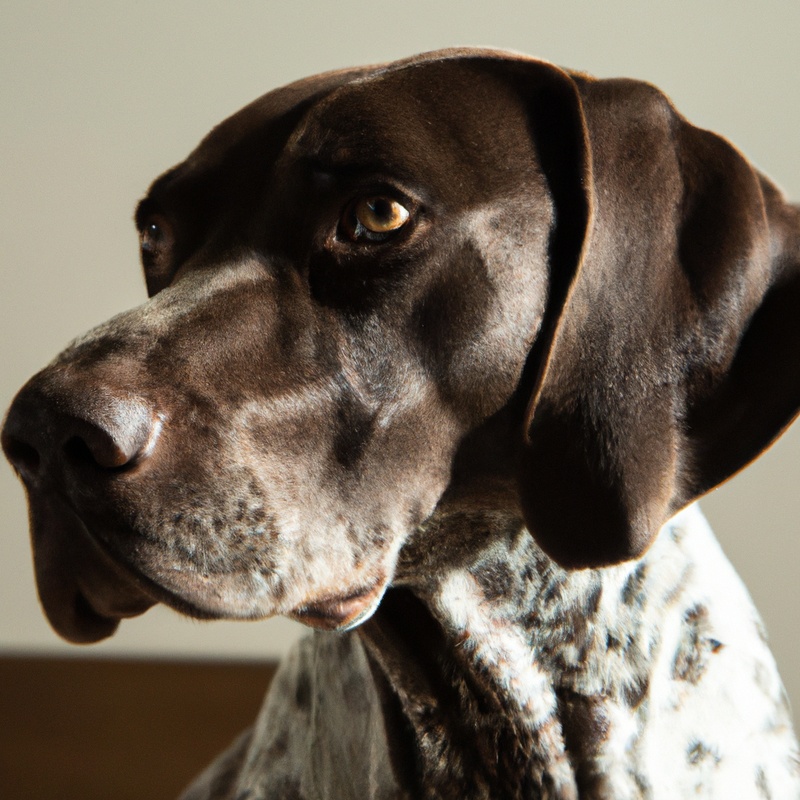
Characteristics and Temperament of German Shorthaired Pointers
German Shorthaired Pointers are known for their athletic build and boundless energy. They have a medium to large size and a sleek, short coat that comes in various colors such as liver, black, or a combination of the two.
They have a distinct head shape, with a long muzzle and expressive eyes.
These dogs are highly intelligent and eager to please, making them easy to train. They excel in activities like hunting, agility, and obedience training.
German Shorthaired Pointers are versatile and adaptable, making them suitable for both active outdoor lifestyles and living in a family home.
Their friendly and outgoing nature makes them great companions for children and other pets. They are known to be loyal, affectionate, and protective.
However, they can also be independent and have a strong prey drive, meaning they may not be suitable for homes with small pets like cats or rabbits.
German Shorthaired Pointers require regular exercise to keep them mentally and physically stimulated. They thrive in homes where they can have ample opportunities to run and play.
Daily walks, jogs, or outdoor activities are essential to keep them happy and prevent boredom or destructive behavior.
Socialization from a young age is crucial to ensure they develop good manners and get along well with other animals and people. Early training and consistent positive reinforcement will help them become well-behaved and obedient companions.
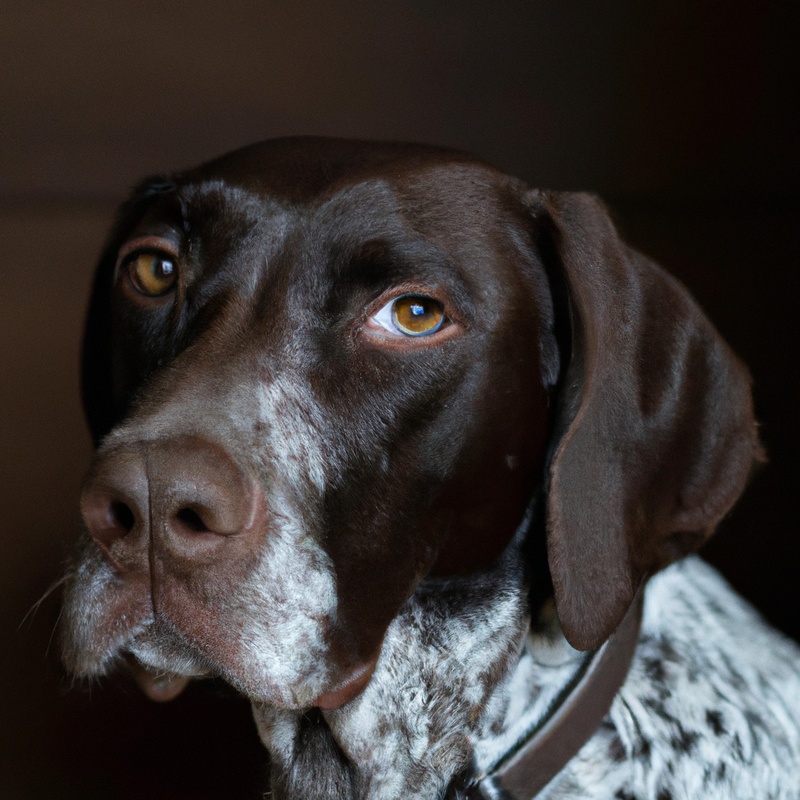
Hunting Instincts of German Shorthaired Pointers
Hunting Instincts of German Shorthaired Pointers:
- Natural hunters: German Shorthaired Pointers have a strong hunting instinct bred into their DNA. They were originally developed as versatile hunting dogs, capable of tracking and retrieving game of various sizes.
- Scent detection: These dogs excel at using their keen sense of smell to locate and track game. Their ability to pick up scents and follow them is one of their greatest assets in the hunting field.
- Versatile hunters: German Shorthaired Pointers are versatile hunters, which means they can adapt to different types of hunting environments. They are known to excel in upland game hunting, as well as waterfowl hunting.
- Pointing behavior: One of their distinctive traits is their ability to “point” or freeze when they detect game. This behavior allows hunters to approach their prey without startling or flushing it, making them excellent companions in the field.
- Strong retrieving instinct: German Shorthaired Pointers have a strong instinct to retrieve downed game. They are known for their ability to fetch and bring back game to their handlers, making them invaluable in the hunting process.
- Stamina and endurance: These dogs have high levels of stamina and endurance, allowing them to cover a lot of ground during hunts. Their athletic build and high energy levels make them excellent partners for long hunting trips.
- Trainability: German Shorthaired Pointers are highly trainable and eager to please their owners. With consistent and positive training methods, they can be taught to follow commands and work closely with their handlers in the hunting field.
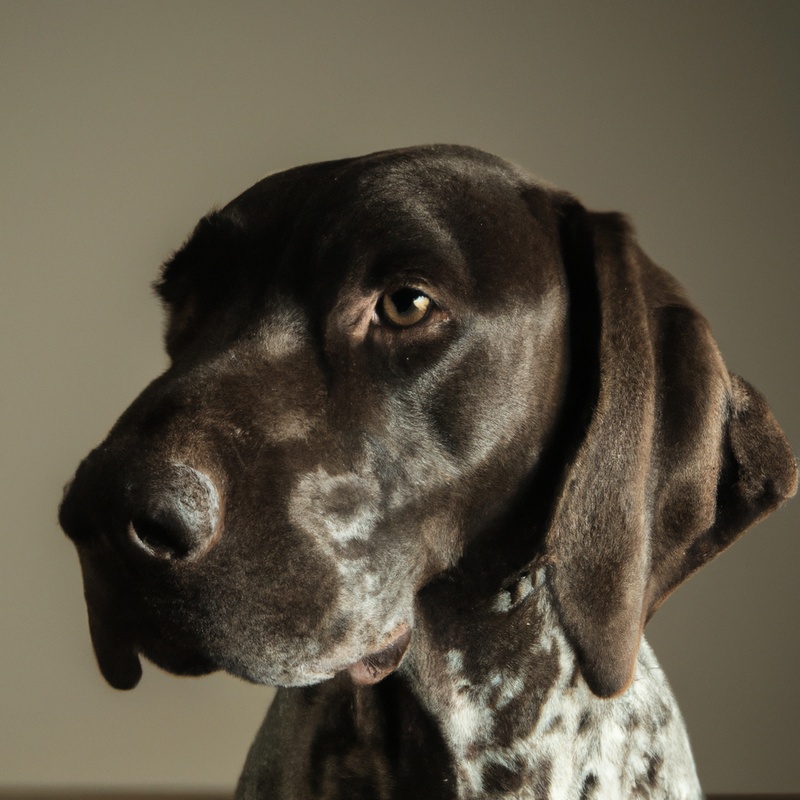
Starting the Training Process
Establishing a Bond with Your German Shorthaired Pointer
Establishing a strong bond with your German Shorthaired Pointer is crucial for successful training. Spend quality time with your dog to build trust and strengthen your relationship.
Engage in activities your dog enjoys, such as playing, walking, or training sessions.
Regularly communicate with your dog using positive reinforcement techniques, like treats and praise, to reinforce good behavior. Consistency and patience are key when building a bond with your German Shorthaired Pointer.
Remember to be a reliable and trustworthy leader for your dog, and your bond will flourish.
Socializing Your German Shorthaired Pointer
Socializing your German Shorthaired Pointer is an important step in their training. Here are a few tips to help you socialize your dog:
- Expose your dog to different places, people, and animals from a young age. This will help them become comfortable and confident in various situations.
- Organize playdates with other dogs to encourage positive interactions and teach your dog how to behave around other animals.
- Introduce your dog to different sounds, such as vacuum cleaners, sirens, or fireworks, to help them become desensitized and less reactive to loud noises.
- Teach your dog basic obedience commands like sit, stay, and come. This will not only make them easier to handle but also improve their overall behavior.
- Use positive reinforcement techniques such as treats and praise to reward your dog for good behavior and encourage them to continue behaving well.
Remember, socialization is an ongoing process. Continuously expose your German Shorthaired Pointer to new experiences to ensure they are well-rounded and adaptable.
Basic Obedience Training for Hunting Preparation
Basic Obedience Training for Hunting Preparation Training your German Shorthaired Pointer for hunting starts with basic obedience training. Here are some key tips to focus on:
- Teach basic commands: Start with commands like “sit,” “stay,” “down,” and “come.” These commands form a foundation for better control during hunting activities.
- Leash training: Train your dog to walk calmly on a leash. This is important for safety and control, especially when you’re out in the field.
- Socialization: Introduce your pup to different people, animals, and environments. This helps them develop confidence and adaptability, making them more reliable hunting partners.
- Desensitization: Gradually expose your dog to hunting-related stimuli like gunfire and the sound of birds flushing. Start with lower intensities and increase gradually to prevent fear or anxiety.
- Retrieve training: Teach your dog to retrieve objects, such as dummies or prey. This skill is essential for retrieving hunted game during your hunting trips.
Remember, consistency, positive reinforcement, and patience are key when training your German Shorthaired Pointer for hunting. It’s a gradual process, so take your time and enjoy the journey with your loyal companion!
Building Hunting Skills
Introduction to Field Work and Retrieving
Introduction to Field Work and Retrieving Field work and retrieving are crucial aspects of training a German Shorthaired Pointer to hunt. These skills enable the dog to locate, flush, and retrieve game, making them invaluable hunting companions.
During field work, the dog learns to search for game, navigate various terrains, and work with their handler.
They develop the ability to follow scent trails, point at hidden game, and retrieve shot birds or other prey. Retrieving, on the other hand, focuses on teaching the dog to bring back whatever they find or are instructed to retrieve.
This skill involves training the dog to hold and carry objects gently in their mouths, as well as obeying commands to bring the prey back to the handler.
By incorporating field work and retrieving exercises into your training regimen, you can help your German Shorthaired Pointer become a proficient hunting dog. It is essential to gradually introduce these tasks, building upon their natural instincts and shaping them into well-rounded hunting companions.
Developing Pointing Techniques
Developing Pointing Techniques Developing pointing techniques is a crucial aspect of training your German Shorthaired Pointer to become an efficient hunting dog. Here are some key steps to help you develop your dog’s pointing skills:
- Start with basic obedience training: Before diving into pointing, ensure your dog has a strong foundation in basic obedience commands such as sit, stay, and come. This will establish a line of communication and control between you and your dog.
- Introduce birds or bird scents: Gradually introduce your dog to birds or bird scents to ignite their natural instinct to point. Use dead birds, bird wings, or commercially available bird scents to get your dog familiar with the scent.
- Use a check cord or long leash: To develop control and consistency in pointing, utilize a check cord or a long leash. This allows you to guide your dog’s movements and reinforce the pointing behavior when they find a bird.
- Employ positive reinforcement: Reward your dog with treats, praise, and affection whenever they exhibit the desired pointing behavior. Positive reinforcement will motivate your dog and strengthen their association between pointing and rewards.
- Gradually increase distractions: As your dog becomes more proficient at pointing, gradually introduce distractions such as noise or other animals. This will help them focus and stay committed to pointing, even in challenging hunting scenarios.
Remember, developing pointing techniques takes time, patience, and consistent training. With dedication and proper guidance, your German Shorthaired Pointer can master the art of pointing and become a skilled hunting companion.
Tracking and Scent Training
Tracking and Scent Training is an essential aspect of training a German Shorthaired Pointer to hunt. This breed has a natural ability to track scents and locate game.
To develop their tracking skills, you can start by introducing them to scent-detection exercises.
Hide a treat or a toy with a distinct scent and encourage your dog to find it. As they become more proficient, you can progress to more challenging scenarios, like tracking scents in different environments and over varying distances.
Regular practice and positive reinforcement will help your German Shorthaired Pointer become a skilled tracker and enhance their hunting abilities.
Advanced Hunting Training
Introduction to Gunfire and Gun Shyness
Introduction to Gunfire and Gun Shyness: Gunfire is a crucial aspect of hunting, particularly for dogs like the German Shorthaired Pointer. It is important to introduce your hunting dog to gunfire gradually and in a positive manner.
Gun shyness is a common issue that can be overcome with training and desensitization.
It is essential to create a positive association with the sound of gunfire to ensure your dog remains calm and focused during hunts.
Advanced Retrieving Techniques
Advanced Retrieving Techniques
- Backcasting: Teach your German Shorthaired Pointer to locate and retrieve objects by starting with short distances, gradually increasing the distance. Use a variety of objects and hide them in different locations to challenge their tracking abilities.
- Water Retrieves: Once your dog is comfortable retrieving on land, introduce water retrieves. Start with shallow water and gradually increase the depth. Use floating objects or dummies specifically designed for water training.
- Blind Retrieves: Train your dog to retrieve objects they haven’t seen fall (blind retrieves. Use cues such as hand signals or whistles to direct them towards the hidden object. Start with shorter distances and gradually increase the difficulty.
- Multiple Retrieves: Challenge your dog’s memory and focus by introducing multiple retrieves in succession. Throw multiple dummies or objects in different directions, and train your dog to retrieve them in the correct order.
- Obstacle Retrieving: Incorporate obstacles such as fences or ditches to simulate real hunting scenarios. Train your dog to navigate these obstacles while staying focused on the retrieve. Start with simple obstacles and gradually increase the difficulty.
- Retriever Hunts: Organize or participate in retriever hunt tests or trials to further improve your dog’s retrieving skills. These events simulate real hunting situations and provide a competitive and challenging environment for you and your dog.
Remember to always make training sessions rewarding and enjoyable for your dog. With consistency, patience, and these advanced retrieving techniques, your German Shorthaired Pointer will become an expert retriever.
Steady to Wing and Shot Training
Steady to Wing and Shot Training is an important aspect of training a German Shorthaired Pointer for hunting. This training helps teach the dog to remain steady and calm when a bird takes flight or a shot is fired.
Here are some tips to effectively train your dog in this skill:
- Start with basic obedience training: Before moving onto steady to wing and shot training, ensure that your dog has a solid foundation in basic obedience commands such as sit, stay, and come. This will make the training process much smoother.
- Introduce the gun gradually: To desensitize your dog to the sound of gunfire, start by associating the noise with positive experiences. Begin by playing a recording of gunshots at a low volume while giving your dog treats or engaging in play. Gradually increase the volume over time.
- Utilize a training dummy launcher: A dummy launcher can be used to simulate the sound of a gunshot and the bird flight. Start by launching a dummy a short distance, gradually increasing the distance each time. Ensure your dog remains steady and does not break from the position.
- Incorporate the wing into training: Attach a wing or feather to the dummy or launcher to simulate the movement of a bird taking flight. This will help your dog learn to stay calm and focused when wings flutter.
- Maintain consistency and patience: Steady to wing and shot training takes time and consistent practice. Be patient with your dog and never punish or scold them for breaking position. Reward them for staying steady and reinforce the desired behavior.
Remember, steady to wing and shot training should be done gradually and at the dog’s pace. By using positive reinforcement, you can help your German Shorthaired Pointer become a reliable and steady hunting companion.
Practical Hunting Training Tips
Exposing Your German Shorthaired Pointer to Real Hunting Scenarios
Exposing your German Shorthaired Pointer to real hunting scenarios is an essential part of their training. This helps them develop the skills they need to become successful hunters.
Here are some tips on how to expose your dog to real hunting scenarios:
- Start with controlled environments: Begin by introducing your dog to hunting scenarios in a controlled environment, such as a training ground or a controlled hunting area. This allows them to get familiar with the sights, sounds, and smells associated with hunting.
- Gradually increase difficulty: As your dog becomes more comfortable with controlled scenarios, start gradually increasing the difficulty level. This can include introducing distractions, different terrains, and varying weather conditions.
- Practice with real game: Once your dog is confident in controlled scenarios, it’s time to introduce them to real game. This can be done by taking them on hunting trips or participating in hunting tests or trials. Make sure to follow all local hunting regulations and ethical practices.
- Use positive reinforcement: During these real hunting scenarios, it’s important to continue using positive reinforcement techniques. Reward your dog for their successes and provide encouragement and support along the way.
Remember, exposing your German Shorthaired Pointer to real hunting scenarios requires patience and consistency. With the right training and exposure, your dog can develop into a skilled hunting companion.
Teaching Your Dog to Work with Other Hunting Dogs
Teaching your dog to work with other hunting dogs is an important aspect of their training. It helps them learn teamwork and coordination, which is crucial in a hunting scenario.
Here are some tips to help you with this:
- Start with socialization: Introduce your dog to other hunting dogs in a controlled environment. Gradually increase the number of dogs they interact with to ensure they feel comfortable and confident around their fellow hunters.
- Use positive reinforcement: Reward your dog when they exhibit good behavior while working with other dogs. This can include following commands, staying focused, and coordinating their movements. Positive reinforcement will encourage them to continue working well with their pack.
- Practice obedience training: Ensure your dog is well-trained in basic obedience commands before introducing them to other hunting dogs. This will provide a solid foundation for working together as a team.
- Gradually increase complexity: Once your dog is comfortable with basic interactions, gradually increase the complexity of the exercises. This can include practicing retrieval tasks or navigating obstacles as a group.
Remember, patience and consistency are key when teaching your dog to work with other hunting dogs. With proper training and socialization, your dog will become a valuable member of the hunting team.
Training Your Dog for Waterfowl Hunting
Training Your Dog for Waterfowl Hunting:
- Introduce your dog to the water: Gradually get your dog comfortable with being in and around water. Start with shallow areas and gradually increase the depth as they become more confident.
- Teach basic obedience commands: Ensure your dog is responsive to basic commands such as sit, stay, and come. These commands will be important during the hunting experience.
- Introduce retrieval training: Begin by teaching your dog to retrieve objects on land. Gradually transition to water retrieves, using decoys or dummy ducks. Reward and praise their successful retrieves.
- Integrate gun sound conditioning: Gradually expose your dog to the sound of gunfire by starting with low-level noises and gradually increasing the volume. Associate the sounds with positive experiences like play or food rewards.
- Incorporate scent training: Introduce your dog to the smell of waterfowl by using feathers or scented dummies. Encourage them to track and find the scent, rewarding their successful finds.
- Simulate hunting situations: Create mock hunting scenarios to familiarize your dog with different hunting situations. This could involve hiding decoys, using calls, and practicing retrieves.
- Hunt with experienced dogs: When your dog is ready, take them on hunting trips with experienced dogs. Observe and learn from their behavior and reinforce the training you have done.
Remember, training takes time and patience. Consistency and positive reinforcement will help your dog become a confident and successful waterfowl hunting companion.
Happy hunting!
Troubleshooting and Challenges
Dealing with Distractions and Overexcitement in the Field
Dealing with Distractions and Overexcitement in the Field:
- Establish a solid foundation of obedience training: Ensure that your German Shorthaired Pointer grasps basic commands such as sit, stay, and come, even when distractions are present.
- Gradually introduce distractions during training: Start with mild distractions like new smells or sounds, and slowly progress to more enticing distractions such as birds or other animals.
- Use positive reinforcement techniques: Reward your dog with treats, praise, and play when they exhibit calm behavior and respond to commands despite distractions.
- Practice impulse control: Engage in activities like “wait” or “leave it” exercises to teach your dog to resist the urge to chase or become overly excited by distractions.
- Incorporate simulations of real hunting scenarios: Create controlled environments that mimic hunting situations, gradually increasing the level of distractions, allowing your dog to focus on the task at hand.
- Maintain consistency: Consistency is crucial in training. Always reinforce the desired behavior and promptly redirect your dog’s attention when they become overly excited or distracted.
- Seek professional help if needed: If distractions and overexcitement persist despite your efforts, consider consulting a professional dog trainer who specializes in hunting breeds. They can provide additional guidance and support in managing these challenges.
Addressing Behavioral Issues in Hunting Training
Addressing Behavioral Issues in Hunting Training
- Understanding the fundamentals: Before diving into addressing behavioral issues, it’s important to have a solid understanding of the fundamentals of hunting training for German Shorthaired Pointers. This includes basic obedience commands, retrieving skills, and introducing them to the hunting environment.
- Socialization: Behavioral issues in hunting training can often stem from a lack of proper socialization. Make sure your dog is exposed to different environments, people, and animals to help them feel comfortable and confident in various hunting situations.
- Positive reinforcement: Reward-based training is highly effective in addressing behavioral issues. By rewarding your dog for desired behaviors and ignoring or redirecting unwanted behaviors, you can shape their behavior in a positive direction. This will help them understand what is expected of them in the hunting field.
- Consistency and patience: Consistency is key when addressing behavioral issues. Stick to a training routine and use the same commands and techniques consistently. Additionally, remember to be patient with your dog. Training takes time and effort, and it’s important to remain consistent and positive throughout the process.
- Seek professional help if needed: If you’re struggling to address behavioral issues on your own, don’t hesitate to seek the help of a professional dog trainer who specializes in hunting training. They can provide guidance, personalized training plans, and professional insight to help you overcome any challenges you may be facing.
Remember, addressing behavioral issues in hunting training requires time, effort, and consistent training. By focusing on the fundamentals, socialization, positive reinforcement, consistency, and seeking help when needed, you can successfully address and overcome behavioral issues in your German Shorthaired Pointer’s hunting training journey.
Overcoming Training Plateaus and Frustration
Training a German Shorthaired Pointer to hunt can sometimes be challenging and frustrating. When you reach a training plateau, it means that your dog has hit a point where they aren’t making progress or seem to have reached a limit in their training.
It’s important to remember that every dog is different, and training takes time and patience.
Here are some tips to overcome training plateaus and frustration:
- Evaluate your training methods: Take a step back and assess if your training techniques are effective. Are you providing clear instructions, using positive reinforcement, and rewarding good behavior? Adjust your methods if needed.
- Break it down: If your dog is struggling with a specific command or skill, try breaking it down into smaller steps. Gradually build up to the full command or skill, rewarding your dog’s progress along the way.
- Change the environment: Sometimes, a change of scenery can help break through a training plateau. Take your dog to a new location or introduce distractions gradually to keep them engaged and focused.
- Keep training sessions short and fun: Dogs have short attention spans, so try to keep training sessions brief and enjoyable. End on a positive note with a successful command, and remember to reward your dog’s efforts.
- Seek professional help: If you’re struggling to overcome a training plateau or feeling frustrated, consider seeking guidance from a professional dog trainer. They can provide personalized advice and help you and your dog overcome any challenges.
Remember, training a German Shorthaired Pointer to hunt is a journey, and progress may not always be linear. Stay patient, consistent, and positive, and you will work through any plateaus or frustrations that arise.
Good luck with your training!
Maintaining Hunting Skills
Consistent Reinforcement of Hunting Commands
Consistent reinforcement of hunting commands is key when training a German Shorthaired Pointer to hunt. It is important to establish clear and consistent cues for each command, such as “sit,” “stay,” and “retrieve.” Here’s how you can reinforce these commands effectively:
- Use positive reinforcement: Reward your dog with treats, praise, or play whenever they perform the desired behavior correctly. This will help reinforce the command and encourage them to repeat it in the future.
- Be consistent with your cues: Use the same verbal cues and hand signals for each command. This will help your dog understand and respond consistently to your instructions.
- Practice regularly: Regular training sessions are essential for maintaining and reinforcing hunting commands. Set aside dedicated time each day to work on these commands with your dog.
- Gradually increase distractions: Once your dog has mastered a command in a controlled environment, gradually introduce distractions. This will help them learn to focus and respond even in more challenging hunting situations.
- Review and reinforce: Periodically review and reinforce hunting commands to ensure they remain fresh in your dog’s memory.
By consistently reinforcing hunting commands, you will strengthen your dog’s abilities and improve their overall hunting skills.
Incorporating Training into Regular Exercise Routines
Incorporating training into regular exercise routines is essential when it comes to maintaining hunting skills for a German Shorthaired Pointer. By incorporating obedience exercises and hunting simulations into their regular exercise routines, you can help train them to become efficient hunters.
One way to do this is by including obedience commands, such as sit, stay, and come, during their walks or runs.
Another effective method is to set up hunting simulations using bird wings or scent trails to stimulate their natural instincts. Remember to gradually increase the difficulty level as they progress in their training.
By integrating training into their regular exercise, you can help your German Shorthaired Pointer become a skilled hunter.
Continuing Education and Skill Refinement for You and Your Dog
Continuing Education and Skill Refinement for You and Your Dog
- Attend hunting workshops and seminars: These events offer valuable educational opportunities to learn new techniques, gain insights from experienced professionals, and stay up-to-date with the latest trends in hunting.
- Join a hunting club or organization: Becoming a member of a hunting club or organization provides access to a community of like-minded individuals who share knowledge, resources, and hunting experiences. You can learn from their expertise and participate in training sessions or events they organize.
- Seek guidance from mentors: Finding experienced hunters who are willing to mentor you and your dog can be priceless. They can guide you through the intricacies of hunting, offer personalized advice, and help refine your skills as a team.
- Read hunting-related literature: Stay informed about new hunting techniques, equipment, and regulations by reading books, magazines, and online articles. These resources can provide you with valuable insights and keep you engaged with the hunting community.
- Attend hunting dog training classes: Enroll your dog in specialized training classes that focus on hunting skills. These classes can improve your dog’s obedience, tracking abilities, and overall hunting performance.
- Practice regularly: Consistent practice is key to maintaining and refining your hunting skills. Regularly schedule training sessions with your dog to reinforce obedience commands, practice retrieving, and simulate hunting scenarios.
- Participate in hunting competitions: Competing in hunting trials or tests can be a great way to assess your skills, gain confidence, and identify areas for improvement. These events also provide opportunities to network with other hunters.
- Stay updated on hunting regulations: Keep yourself aware of any changes or updates to hunting regulations in your area. Adhering to legal requirements ensures ethical hunting practices and maintains the sustainability of wildlife populations.
- Stay physically fit: Hunting requires endurance, agility, and strength. Incorporate regular exercise and conditioning routines for both you and your dog to enhance your overall performance in the field.
- Embrace new technologies: Explore the use of technology to enhance your hunting experience. From GPS tracking collars to smartphone apps, there are various tools available that can assist with navigation, tracking, and identifying game.
Remember, hunting is a lifelong learning process. Continuously seeking new knowledge and refining your skills will not only improve your effectiveness as a hunter but also deepen the bond between you and your hunting dog.
Final Verdict
Training a German Shorthaired Pointer to hunt requires patience, consistency, and a deep understanding of their breed characteristics. By establishing a strong bond, socializing effectively, and implementing fundamental obedience training, you can lay the foundation for building hunting skills.
From field work and retrieving to advanced techniques like steady to wing and shot training, the key is to gradually expose your dog to real hunting scenarios and provide consistent reinforcement.
Additionally, addressing challenges and maintaining skills through regular practice will ensure a successful partnership in the hunting field. Trust in the expertise presented here and embark on your training journey with confidence.

